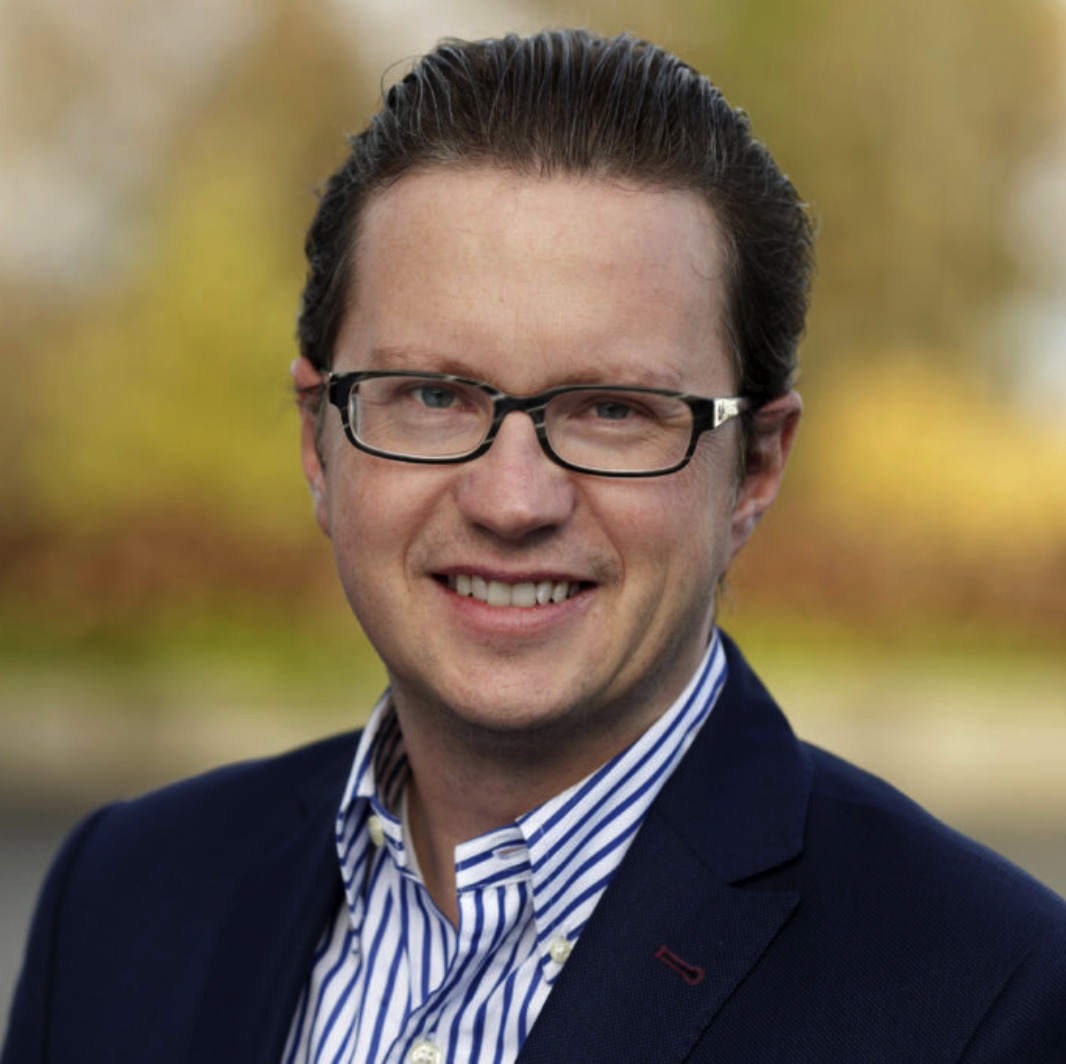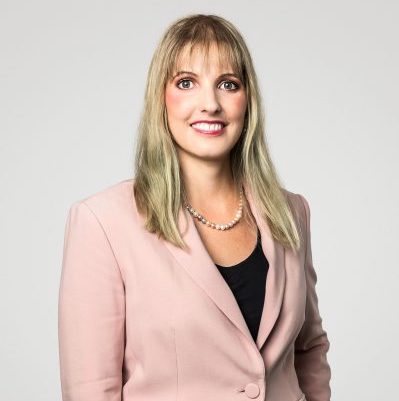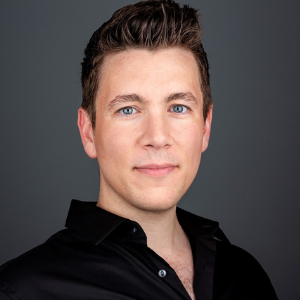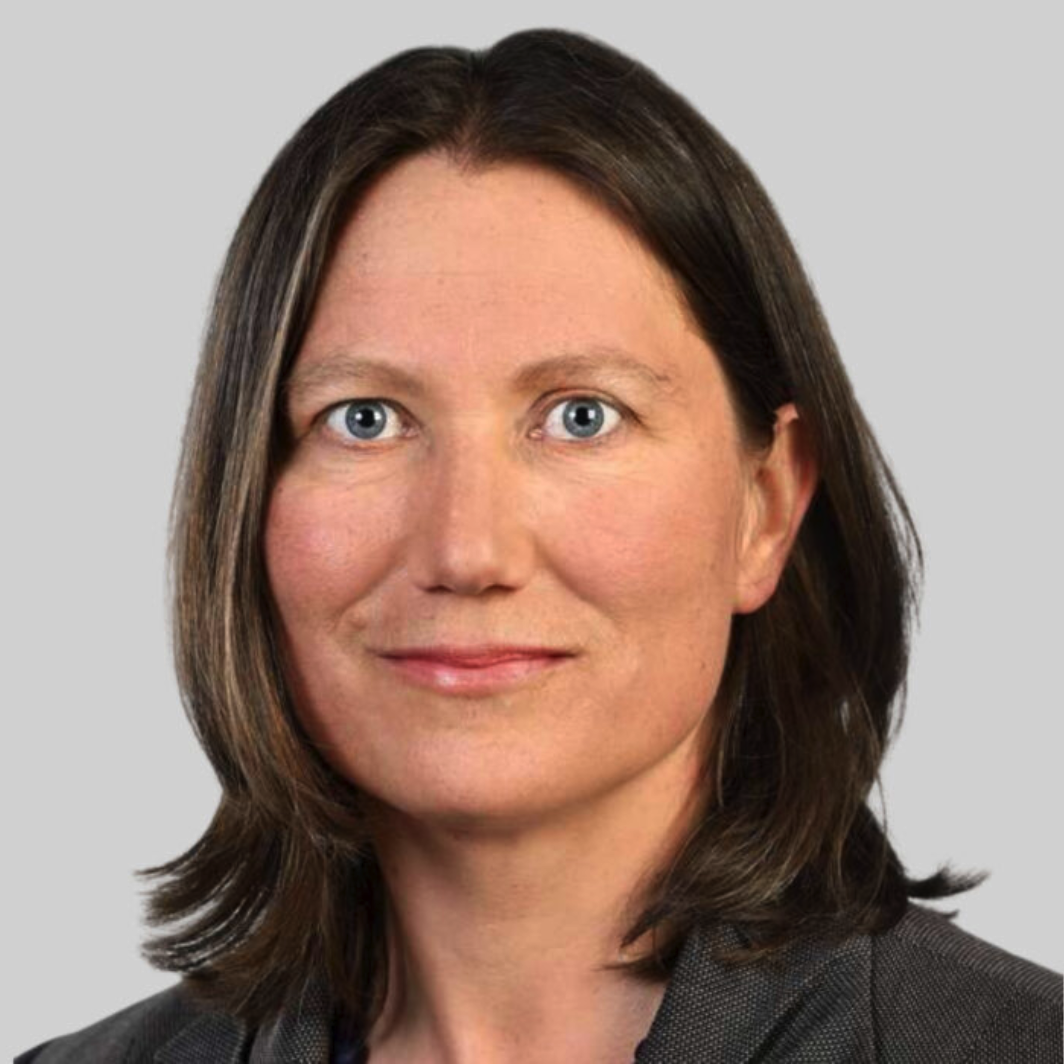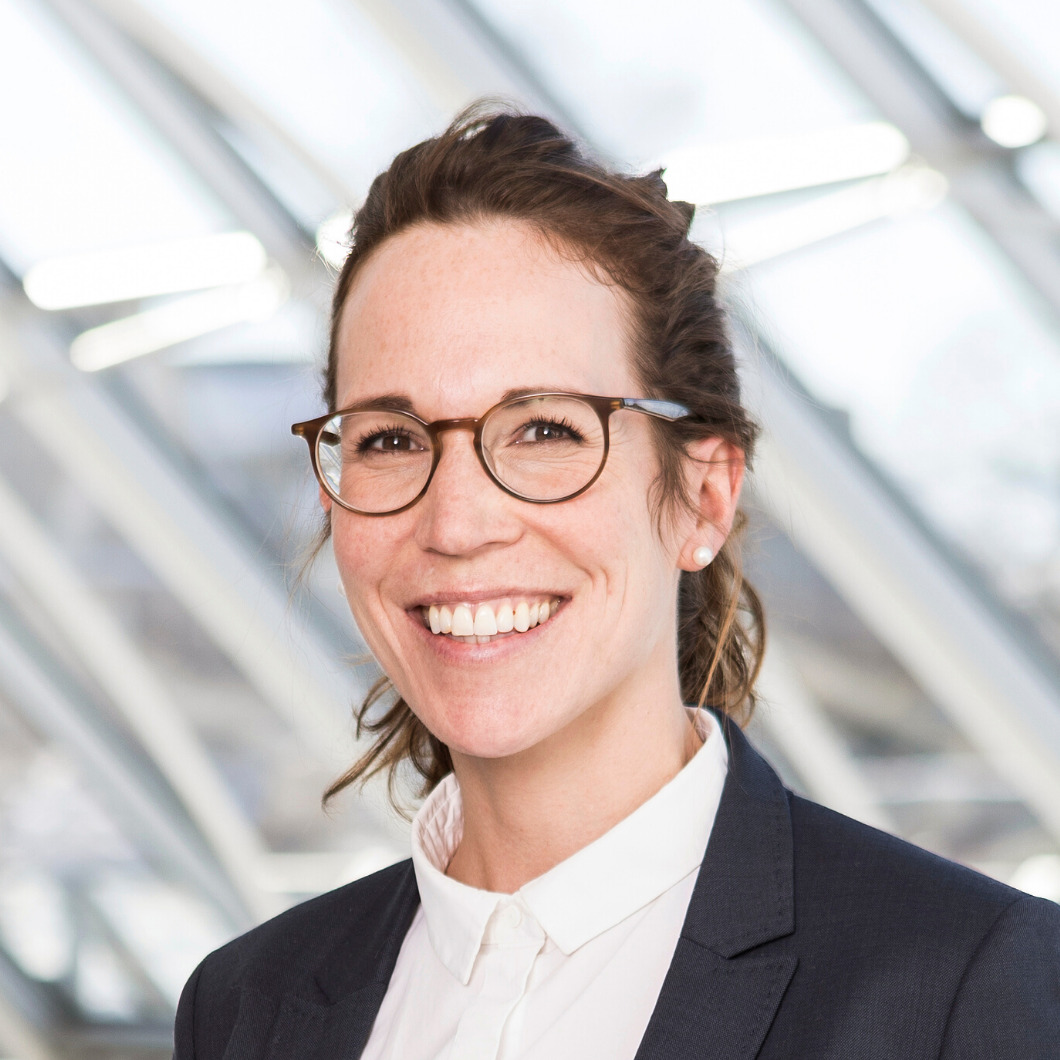6. St. Galler Diversity & Inclusion Week
Inclusion, Exclusion, and the Impact of (in)visibility
PROGRAMME 2022
When exclusion benefits inclusion
To truly move the needle on workplace diversity and inclusion, might we have to exclude (some) to include (most)?
If so, how can we identify excluders, prevent hiring excluders in the first place, and effectively deal with the excluders who are already employed?
Prof. Dr. Jamie Gloor | English
Description
“Unconscious bias” and “inclusive leadership” are today’s D&I buzzwords. But what should companies do about those who continue to show conscious bias? These are the “excluders,” who despite various corporate interventions, still treat specific groups of people differently than others.
In this talk, we’ll discuss how excluders might be a key reason for the recent stagnation of D&I progress in organizations, while also exploring some evidence-based best practices to identify, prevent, and deal with excluders.
ACTUALLY, I’M NOT LIKE THAT – A CRITICAL VIEW ON AUTHENTICITY AND ROLES
What are the fields of tension between authenticity and a professional understanding of roles? To what extent can the concepts be fruitful as normative concepts but also for coping with stress?
Dr. Florian Krause | English
Description
When are we perceived as authentic? Under what conditions should we be authentic? In general, ʺbeing authenticʺ is considered a desirable character trait in professional and private contexts. Acting in harmony with ourselves is commonly seen as a desirable and ethically valuable goal.
But how can our understanding of multiple roles that we take and discard on a daily basis be reconciled with an emphasis on authenticity? And doesn’t our very ability to develop roles and perform well in roles not only represent an essential competence to act in the professional positions assigned to us, but rather still an important protective function against stress and frustration? Can a reference to authenticity justify questionable actions in roles?
The better choice
Do women and underrepresented groups need different structures?
How does a culture become more inclusive?
Cultures and structures that fit instead of forcing employees into unsuitable systems.
Prof. Dr. Gudrun Sander | German
Description
Corporate cultures and organisational structures evolve around certain needs depending on power relations. The systems tailored to the male sole breadwinner do not fit for many others. Instead of finding “special arrangements” for groups that do not fit into this full-time culture and the corresponding structures, we should think critically about how we can make changes so that more groups feel included and can contribute their full potential. In doing so, it is important to look more deeply at long-term effects and shifts in power. Menstrual Fridays are certainly the wrong way to go.
TRAINING FOR INCLUSIVE LEADERSHIP - "INCLUSION BITES" AS A PRACTICAL EXAMPLE
What is inclusive leadership?
What can I do to (successfully) lead inclusively?
What measures are there that can be implemented quickly, easily and practically in everyday (work) life?
Prof. Dr. Stephan Alexander Böhm, Nicola Glumann & Simon Huber | German
Description
Various factors are relevant for a successful inclusion. However, leaders – in their role as role models and multipliers – play a particularly important role: To promote inclusion through leadership, knowledge, empathy and commitment are required. But even short “bites” can be effective: Changes that are often not visible at first glance can make all the difference in the long run! So what can we do concretely to promote inclusion in organizations?
During our session, we will present a training that uses short, effective “inclusion bites” to promote inclusive leadership. Using this practical example, we would like to shed light on how inclusion can be implemented, promoted and made measurable in everyday work.
Our session will consist of an introduction on the current state of research (Prof. Dr. Stephan Böhm), insights from our own data (Nicola Glumann, M.Sc.) and the perspective from practice (Simon Huber, M.Sc., Swiss Post). Finally, there will be time for a Q&A.
Description
The Gender Intelligence Report (GIR) has been designed as a guide to support companies with actionable key performance indicators (KPIs) and concrete recommendations on how to optimize their gender diversity and inclusion programs.
This annual report also includes a selection of best practices that have proven to work in Advance member companies and provide inspiration for impactful initiatives.
INDUSTRY SPLIT – NEW THIS YEAR
For the first time, the report 2022 shines a light on how different industries are faring in terms of gender diversity. Data will tell the story sector-by-sector along the talent pipeline from entry level to the top. – We are expecting interesting insights through this new lens
IT CAN BE SO EASY: FOSTERING EQUAL OPPORTUNITIES WITH GENDER-INCLUSIVE LEADERSHIP PRACTICES
What can (male) managers do to foster equal opportunities in their company?
How can these “silent” changes promote a cultural change that is conducive to equal opportunities in the company?
Prof. Dr. Julia Nentwich & Dr. Gabriele Schambach | German
Description
Equal opportunities are relying on the commitment of managers – and that is particularly a commitment of men in the company. Even if this may involve highly visible appearances and activities by “male champions,” it is mostly about the less visible things that shape everyday practices. If leaders can develop and implement gender-inclusive leadership practices here, a great potential for fostering change opens up for them. In our study “Leaders for Equality: The Gender Equality Commitment of Male Leaders”, we showed that men are motivated and in many cases already active. At the same time, however, there is often still a lack of hands-on knowledge and good examples of how gender-inclusive leadership can look like. In this online session, we will present the most important gender-inclusive leadership practices and elaborate on
In dieser Online-Session werden wir die wichtigsten Genderinklusiven Führungspraktiken mit konkreten Fallbeispielen vorstellen. Der systematische Überblick über die verschiedenen Handlungsmöglichkeiten im konkreten Führungsalltag unterstützt Führungskräfte, in relevanten Alltagssituationen gleichstellungsorientiert zu handeln und damit die Gleichstellungskultur im Unternehmen zu befördern. Wir freuen uns auf den Austausch mit den Teilnehmenden über ihre dabei bereits erlebten Erfolge, aber auch die bestehenden Herausforderungen. concrete examples. The systematic overview of the various possibilities for action in everyday leadership situations supports managers in acting in a gender-inclusive manner and thus promotes the company’s equal opportunities culture.
We are looking forward to discussing with participants about already experienced successes, but also the existing challenges.
D&I in your supply chain
What is Supplier Diversity / Inclusive Sourcing?
Why do companies do inclusive sourcing / supplier diversity?
Andrea Fimian | English
Description
Diversity and inclusion don’t end with the workforce of a company. This Online-Session discusses the topic of diversity & inclusion in the supply chain. Diversity & Inclusion in the supply chain is an extension of companies’ diversity & inclusion programs in their supply chain. This involves ensuring that there is supplier diversity within the company. With the increasing focus on ESG issues (Economical Social Governance) and the UN SDGs (https://sdgs.un.org/goals), companies are increasingly looking to make their supply chains more diverse.
You will learn what supply chain diversity & inclusion programs are and why they help companies increase revenue.
Description
This talk addresses two interdependent logics that produce an unsustainable inclusion of Black women and other racially minoritized groups in European higher education. Racial burden, on one hand, designates the labor surplus that racially minoritized people must accomplish to “fit” in an institution that is historically not meant for them. Tokenism, on the other hand, relates to the way institutions instrumentalize Black and racially minoritized presence for the fabric of their own progressive image. By means of Black feminist modes of critique, such as experiential storytelling and fabulation, I expose the effects of racial burden and tokenism on Black women and dream about higher education institutions centered on care.
Wage transparency: what works?
How is wage transparency practiced in Swiss companies? What are the benefits of wage transparency? What are the challenges of different systems of wage transparency?
Martina Egli, Theresa Goop, René Heiz, Manuel Wiesner | German
Description
At the latest since the revised Gender Equality Act, a central topic in the field of D&I has been the subject of much discussion: where does Switzerland stand in terms of equal pay? With the equal pay analysis, companies have brought visibility to their pay data and now know where they stand. Employees and companies have become more sensitive to this issue. This is also accompanied by the desire for pay transparency on the part of employees.
What is wage transparency?
Salary transparency can mean openly communicating the results of salary analyses, clearly defining salary systems or even completely disclosing all salaries. One thing is clear: in Switzerland, wages are predominantly a taboo subject. Companies that implement wage transparency are important role models to counteract this taboo culture.
For what reasons do companies disclose wages or even let the team itself set the wages? In the panel, representatives of Swiss companies tell us how they implement wage transparency. We want to know what challenges they have to overcome, which systems work and which do not.
Intelligence - implications for diversity & inclusion
In which manner has intelligence research historically contributed to excluding social groups?
How do implicit ascriptions of intelligence today serve to exclude people with certain “diversity characteristics” and how can intelligence research contribute to inclusion?
Dr. Anna-Katrin Heydenreich | English
Description
This session sheds light on how intelligence research has historically contributed to creating and sustaining the idea of human hierarchies and the invention of human “races”. Research on intelligence has served as a scientific explanation for the exclusion of people due to their supposed “race”, their social class or their gender. Until today we tend to associate intelligence with certain diversity characteristics. Ascriptions of intelligence hence still play a role in processes of exclusion. Today, contrary to its harmful consequences in the past, research on intelligence can be used to question those deeply held implicit assumptions. Thus, contrasting implicit ascriptions of intelligence with a contemporary scientific understanding of intelligence could counteract these exclusionary social processes and thereby foster the inclusion of traditionally excluded social groups.
On-Site Presentations

When many do something together... or how a diversity council can advance equality in the company
How can the commitment of male managers to gender equality be anchored in the company structure?
How can a “Diversity Council” be profitably introduced and effectively used?
Manuela Bärtsch Forster, Prof. Dr. Julia Nentwich & Dr. Gabriele Schambach
German | St. Gallen
Description
The study of the project “Leaders for Equality: On the Commitment of Male Managers to Gender Equality” has shown that men are motivated to commit themselves to gender equality and are already active in many cases.
So far, however, many companies lack structured processes to sustainably anchor this commitment. The establishment of a “Diversity Council” is a good way to go about this. In the council, men and women from different areas and hierarchical levels come together to discuss important equality and diversity issues with each other, make concrete recommendations to the company management, and initiate tangible measures that are then implemented.
Together we initiated a Diversity Council at Helvetia Insurance Switzerland last year. In this session, we will firstly present the conceptual approach of this form of structural anchoring of gender equality engagement and participation. Secondly, we will present the work of the Diversity Council at Helvetia and its initial successes and challenges.
Together with the experiences of the participants, we would like to discuss the advantages as well as the difficulties of these forms of work – and look forward to further suggestions.

D&I Journey - with an impact
What steps support organizations in implementing a successful D&I engagement?
How can resources be used in a targeted way to achieve progress?
Dr. Ines Hartmann, Nicole Niedermann, Renée Rädler & Melissa Schenk
German | St. Gallen
Description
The topic of Diversity & Inclusion is broad. Organisations address various challenges with countless measures. But how can companies ensure that they target their most significant need for action? How can a targeted use of resources support companies to make progress on their journey to become more diverse and inclusive organisations?
The “D&I Journey – with an Impact” is an approach to support companies in implementing a systematic way to achieve a more significant impact.

SPEECH BY FUMI KURIHARA

Women, leadership, well-being: how to achieve psychological sustainability
What is sustainable self-leadership? How does sustainable self-leadership change leadership practices?
German | St. Gallen
Description
Sexism and gender-based marginalization in the workplace are often subtle and therefore remain invisible. Yet they have an effect: they can undermine women’s sense of self-worth and belonging in the long term. Studies show that they often respond to these experiences with increased self- and emotion management, which is not only psychologically stressful, but also maintains the status quo.
In this workshop we look at the basics of sustainable self-leadership. We identify typical problem situations and deal with the question of what inclusion/exclusion looks like on the psychological level. Which expectations and ideals do we try to fulfill? Which needs fall by the wayside, which parts of the self remain unheard? Together, we will develop strategies and solutions a) for dealing with the challenges and stresses of your daily work in a psychologically sustainable way, and b) for implementing these as part of your leadership practice.
speakers 2022
Manuela Bärtsch Forster
Manuela Bärtsch Forster was born in 1976 in Landquart, studied Business Administration at the University of St.Gallen and holds an Executive Master in Strategic Human Resources Management from Bocconi University & Cornell University. In addition to study and work stays in Geneva, Chile, Canada, Sweden and the USA, she has now settled in St. Gallen, where she lives with her husband and three children. After 16 years in various HR functions in industry (including ABB and Bühler), she has been working at Helvetia Insurance since 2017, currently as Head People Attraction & Diversity.
Prof. Dr. Stephan Alexander Böhm
Stephan Böhm is Associate Professor for Diversity Management and Leadership and Director of the Center for Disability and Integration at the University of St. Gallen. His research focuses on inclusion, leadership, human resources and diversity management. He advises numerous companies on topics of healthy leadership, digitalisation and the management of demographic change.
DR. NILIMA CHOWDHURY
MARTINA EGLI
As Co-CEO of the Bern-based software development and design agency Zeilenwerk, Martina Egli is responsible for all innovation and strategy topics of the company. Zeilenwerk has realized well-known apps such as Smartvote and sees itself as a driving force of next-gen agencies worldwide. In 2019, she completed her Master’s degree in Business Innovation at the University of St. Gallen. She was also recently named to the “30 under 30” list by Forbes.
ANDREA FIMIAN
Prof. Dr. Jamie Gloor
With more than 15 years of experience on four continents, the award-winning lecturer, researcher and speaker explores topics such as gender/diversity and soft skills (e.g. humour) in the context of the future of work and leadership. She is currently funded by the Swiss National Science Foundation and works with her team at the CCDI of the St.Gallen School of Management.
Nicola Glumann
Nicola Glumann, M.Sc., is a research associate at the Center for Disability and Integration at the University of St.Gallen (CDI-HSG). She conducts research on diversity, inclusion and new work. As part of the research project “Inclusion Champions Switzerland”, funded by the Federal Office for the Equality of Persons with Disabilities (EBGB), she is developing effective intervention strategies to promote inclusion in the workplace in cooperation with leading companies.
Theresa Goop
Theresa Goop heads the Wage Centre at the Competence Centre for Diversity & Inclusion and advises companies on the process and method of equal pay analyses. She supports companies on their way to non-discriminatory pay based on objective findings from HR data. In her previous work as an economic consultant, she applied economic models and methods to various problems faced by international companies.
Dr. Ines Hartmann
Ines Hartmann is member of the CCDI Management Team and is responsible for the St.Gallen Diversity Benchmarking together with Nicole Niedermann. She leads other company-specific projects on inclusive leadership and D&I, such as in-depth D&I analyses (quantitative and qualitative) or the development of D&I strategies. She gives workshops, holds lectures and teaches at universities and other schools on the topic of D&I as well as Strategic Management. She publishes on topics such as diversity management and inclusive organizational culture. She holds a PhD in Social Sciences and a Master’s degree in Strategy and International Management from the University of St. Gallen.
René Heiz
Within Swiss Post Group, René Heiz has worked in various areas, from logistics and public transport to financial services. He was able to implement various projects and help shape CEC negotiations in several subsidiaries. He has been Head of the Compensation & Social Insurance unit since 2017.
“Swiss Post attaches great importance to equal pay, and with transparency in job advertisements, we are taking another important step in this direction”.
Dr. Anna-Katrin Heydenreich
Anna-Katrin Heydenreich works as a specialist for Diversity & Inclusion and as lecturer at the University of St. Gallen. She is an economist by training and has a strong background in sustainability, a topic she approaches from the perspective of social psychology and discursive organizational psychology. Her doctorate on stakeholder engagement processes lead her to assignments on collaboration and engagement processes in Jerusalem and Switzerland.
Simon Huber
Simon Huber, M.Sc., is an industrial and organizational psychologist. In addition to his experience in science and research, he has worked in the areas of employer branding and social media marketing. Since 2019, he has been a specialist in health management at Swiss Post. He is leading the implementation of the “Inclusion Champions Switzerland” project. Over a period of three years, it is the main focus to examine the status of inclusion in the organization (“Inclusion Barometer”) as well as develop, implement and evaluate a training to promote inclusion (“Inclusion Bites”).
Florian Krause
Florian Krause works as Senior Research Fellow and Lecturer at the Institute for Business Ethics at the University of St.Gallen and the Insitute for interdisciplinary Work and Employment Studies at the Leibniz University of Hanover. With philosophical and economic approaches, he is particularly focused on with ethical challenges of digital transformation processes, sustainability, and questions of diversity and identity.
Fumi Kurihara
Fumi Kurihara is the Founder of #OUR_ and Producer/Host of #OUR_racism, a podcast where people of different backgrounds share their personal experiences of racism from around the world. Fumi is currently pursuing her PhD on digital health and dating platforms at HSG, where she also works as Research Associate at the Institute for Information Management (HSG-IWI). Her professional interests lie at the intersection of global health, digitalization, diversity and inclusion.
She holds a Master in International Affairs with a specialisation in Global Health from the Geneva Graduate Institute, and a Bachelor of Arts from Waseda University in Tokyo, Japan.
Dr. Noémi Michel
Dr. Noémi Michel is an anti-racist and feminist scholar, teacher, activist and cultural worker. She is a lecturer in political theory in the Department of Political Science at the University of Geneva and teaches regularly at the Geneva School of Art and Design (HEAD). Dr. Noémi Michel has been a Visiting Professor of Diversity Politics at HU University and has completed research stays at Northwestern University, UC Berkeley, and EHESS Paris. She is currently researching different understandings of anti-racism in public debates and institutions in Europe, as well as diasporic black feminist theories of political voice.
Prof. Dr. Julia Nentwich
Julia Nentwich is a titular professor of psychology and a private lecturer in business administration. She leads the research focus on gender and diversity at the Chair of Organizational Psychology. She conducts interdisciplinary research using qualitative research methods on issues of equality and diversity, change and resistance, integration and inclusion. Among other things, she is currently an associate editor for the international journals “Gender- Work and Organization” and “Equality, Diversity and Inclusion”.
Nicole Niedermann
Nicole Niedermann is member of the CCDI Management Team. Together with Ines Hartmann she manages the annual St.Gallen Diversity Benchmarking study and leads customized I&D projects. She holds a master’s degree in Organisational Psychology and Business Administration from University of Fribourg. Having worked on DEI for more than ten years, her expertise lies in I&D strategy development, I&D analysis, managing Unconscious Bias, Inclusive Leadership and on designing inclusive HR processes.
Alkistis Petropaki
Alkistis Petropaki has been the Managing Director of Advance Women in Swiss Business since 2015. She has more than 20 years of management experience with international consumer goods companies such as L’Oréal, Nestlé, Mövenpick and Lindt. Before joining Advance, she was Country Manager Switzerland at Yves Rocher. With her involvement at Advance, she aims to help women become the architects of their own careers. Alkistis holds a Master’s degree in Management from ESCP-Europe and a degree in German and Psychology from the University of Athens.
CHRISTIAN PIERCE
Christian Pierce is a project manager at the CCDI. At the same time, he is doing his PhD in organisational studies and cultural theory at the University of St. Gallen. His research focuses on anti-racism in multinational companies from a human rights perspective. He graduated from the United States Military Academy with a degree in Economics and holds an M.Sc. in Business from the COPPEAD Graduate School of Business at the Federal University of Rio de Janeiro in Brazil with a qualitative thesis on cultural diversity. He has consulted to several organisations in the US, Latin America and Europe on D&I, specialising in ethnic equality.
RENÉE RÄDLER
Renée Rädler joined Hexagon in January 2017 within the Manufacturing Intelligence division in EMEA before taking the role of Executive Vice President Global HR in 2021. The division Manufacturing Intelligence has today 8800 employees. Renée has more than 20 years’ experience in HR roles in large international companies.
Prof. Dr. Gudrun Sander
Gudrun Sander is a titular professor of business administration with a special focus on diversity management, co-director of the Forschungsstelle für Internationales Management and director of the Competence Centre for Diversity and Inclusion. She researches diversity and inclusion from a strategy, leadership and corporate culture perspective, leads the national diversity benchmarking and is an academic expert in various international and national committees.
Dr. Gabriele Schambach
Gabriele Schambach is the owner of Genderworks (www.genderworks.de) and works as a consultant, trainer and speaker. She has been working on gender and diversity for more equal opportunities in companies for more than twenty years. Gabriele is currently co-leader of the “Leadership for Equality” project at the University of St. Gallen (www.leaders4equality.ch). As a trained industrial administrator and PhD political scientist, she combines her knowledge of systemic organisational development and transactional analysis with scientific findings and corporate practice.
Melissa Schenk
Melissa Schenk studied Business Administration with a focus on Intercultural Management and focussed on D&I during her Diploma of Advanced Studies in HR Management. Along with her private and professional experience working with people with disadvantages, she has a great interest for this topic.
Since 2014 she is HR Manager at Hexagon Manufacturing Intelligence and is working together with the CCDI from the University of St.Gallen on various topics on the “D&I Journey – with an impact”.
Manuel Wiesner
Together with his brother, Manuel Wiesner owns the Wiesner Gastronomie AG family with around 1,000 employees. They are among the 20 largest restaurateurs and are known for helping to shape the gastronomy industry with their unconventional and courageous ideas. They were one of the first companies to introduce full wage transparency. Yet for them, this is only the tip of the iceberg – the right corporate culture is needed as a basement.












